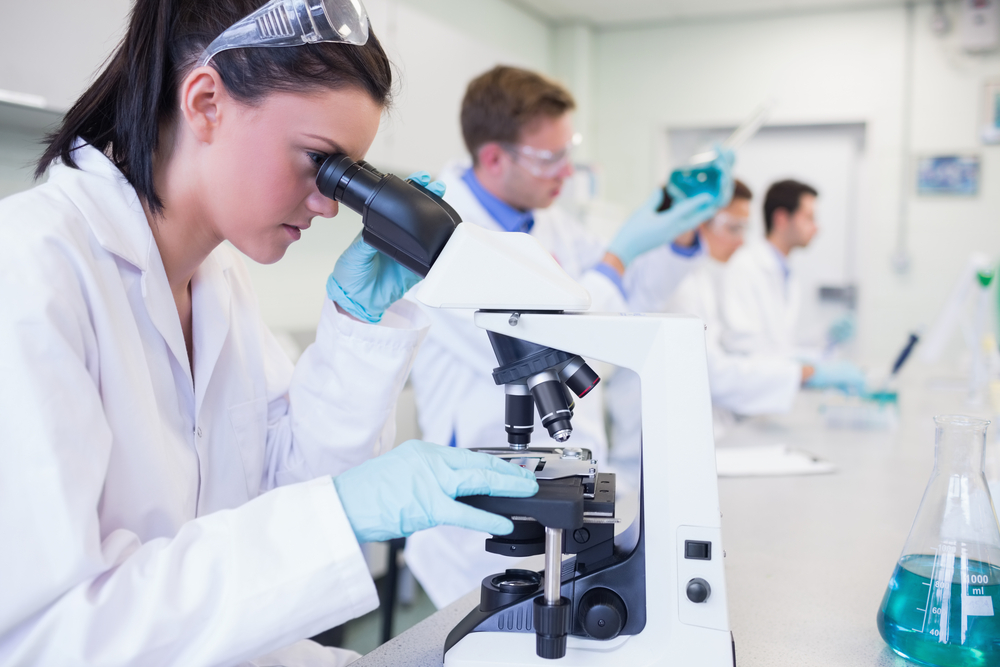
Objective
Translational Biomedicine proposes transferring (translating) knowledge from Physiology, Biochemistry, Molecular Biology and Cell Biology (in vitro, in vivo and in silico studies) to the clinical scenario (bedside, outpatient clinics, where the clinician and clinical investigator work), targeting the formation of graduate students in Life Sciences. The program encompasses: (i) the development of new methods of early diagnosis, including biomarkers and bioimaging; (ii) the formulation of proposals for innovative therapeutic solutions, including new drugs, cell therapy and bioengineered products; (iii) fostering knowledge of health status deviations, in a phase that precedes the emergence of symptoms above the clinical horizon - critical analysis of the results of studies with experimental models and clinical and epidemiological studies on the participation of risk factors and possible interactions with individual genetic predisposition.
The concentration area “From Biological Systems to Translational Biomedicine” aims, therefore, to rescue the interactive dialogue between cellular and molecular biology with the clinical researchers, promoting the reverse movement "from clinic to bench". Graduates of the program will have an interdisciplinary training with an emphasis on: (i) cellular and molecular biology, physiology, pathophysiology, molecular genetics; (ii) in the investigation of elements of early diagnosis; (iii) proposing innovative therapeutic solutions, such as those arising from tissue bioengineering. Pre-clinical studies (in experimental models) and clinical trials, Phase 1 (in humans), which will emerge clearly defined outcomes from these protocols. With that training, graduates will be able to understand, at the cellular and molecular levels, the pathophysiological mechanisms of multifactorial and neglected diseases.
The Tissue Bioengineering line of research encompasses projects that aims at investigating mechanisms for repairing damaged tissues and organs, using models that involve cells, proliferation factors and cell differentiation and frameworks. Through translational models, it is proposed new therapeutic possibilities. It also aims to obtain knowledge to improve processes of isolation, expansion and differentiation of stem cells of different origins and types (embryonic, induced pluripotency - iPS -, mesenchymal) and primary cells isolated from different tissues, as well as to understand the mechanisms of interaction of these with the biomimetic frameworks and the tissue microenvironment. The line includes phenotypic research projects on these cells by molecular biology, immunostaining, cytometry and microscopy. It also investigates the biological, physical, chemical and mechanical characteristics of new materials and their various combinations, encompassing the correlations between microstructure / property / biological response.
Concentration area: From Biological Systems to Translational Biomedicine
Professors: Adalberto Ramon Vieyra, Alexander Machado Cardoso, Cláudia Maria Pereira, Eidy de Oliveira Santos, Fabio da Silva de Azevedo Fortes, Jose Mauro Granjeiro, Leandra Santos Baptista, Sergio Henrique Seabra, Victor Talarico Leal Vieira.
The Bioimaging (BI) line encompasses research projects aimed at researching organ metabolism, the biological behavior of biomaterials (when in function) and their roles (in a translational perspective) in pre-clinical studies and clinical evaluation trials adverse effects and drug efficacy outcomes. The research line includes research and innovation projects with different and combined BI approaches. These projects include cellular and molecular studies of nuclear magnetic resonance, computed (micro) tomography, ultrasound, spectroscopy and voltage diffuser image, optical microscopy, scanning, transmission and confocal electronics, and positron emission tomography.
Concentration area: From Biological Systems to Translational Biomedicine
Professors: Celso Barbosa de Sant'Anna Filho, Cláudia Maria Pereira, Daniel Escorsim Machado, Fabio da Silva de Azevedo Fortes, Jose Mauro Granjeiro, Leandra Santos Baptista, Marlene Benchimol, Sergio Henrique Seabra, Victor Talarico Leal Vieira, Wanderley de Souza.
Biomarkers (BM) include two categories, namely biological and image. Biological BMs are the expression of cellular and genetic-molecular mechanisms (including mutations and polymorphisms), and the dysfunction of tissues, organs and systems. BM by image characterizes morphological, functional and metabolic changes. This research line includes projects that investigate molecules, supramolecular structures and bioimaging tools involved in the early recognition of deviations in health status and anticipation of therapeutic response, in a translational perspective. The line also includes projects aimed at: (i) expanding critical knowledge about the function of biomarkers, such as immunometabolic proteins, cytokines, microRNAs, genetic variants that affect the therapeutic response, somatic factors for multifactorial diseases, tumor antigens and classification molecular tumor; and (ii) to investigate morphofunctional modifications such as those resulting from the interaction of parasites with the microenvironment of tissues and organs, and those resulting from responses to drugs and bioengineered products (stem cells in natural and synthetic frameworks).
Concentration area: From Biological Systems to Translational Biomedicine
Professors: Adalberto Ramon Vieyra, Alexander Machado Cardoso, Cláudia Maria Pereira, Daniel Escorsim Machado, Eidy de Oliveira Santos, Fabio da Silva de Azevedo Fortes, Leandra Santos Baptista, Pedro Hernan Cabello Acero, Sergio Henrique Seabra.